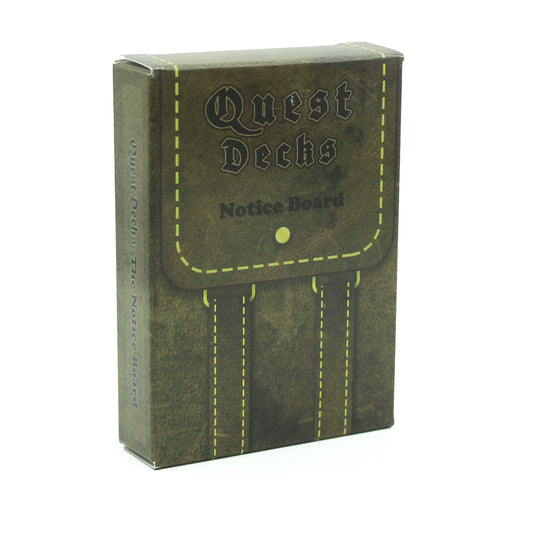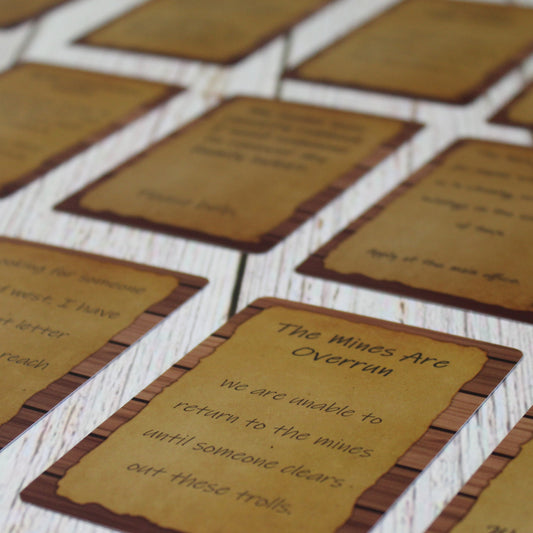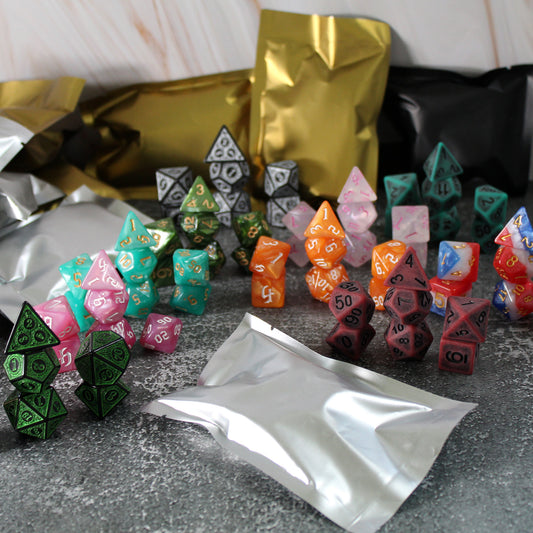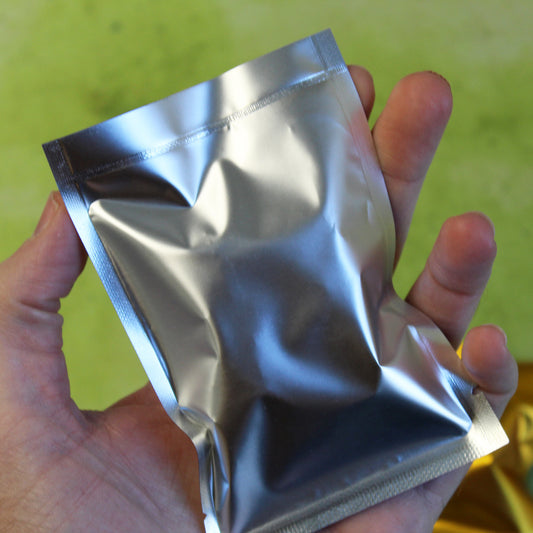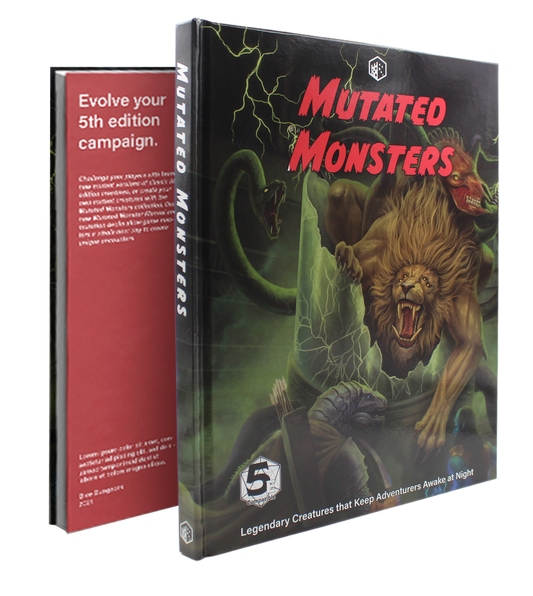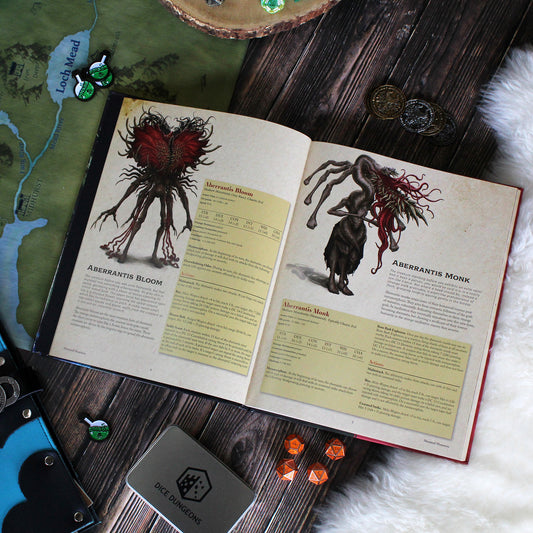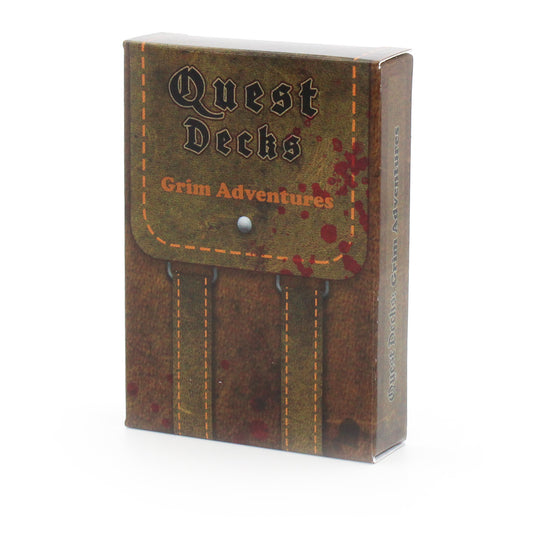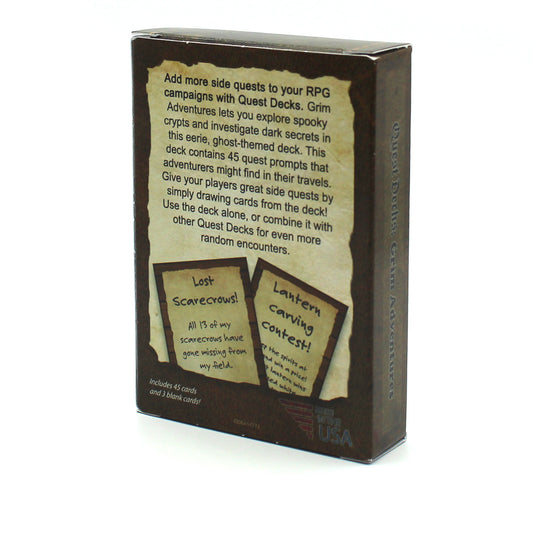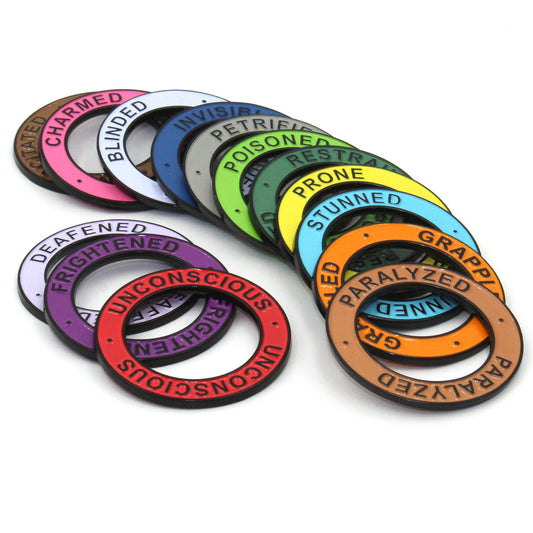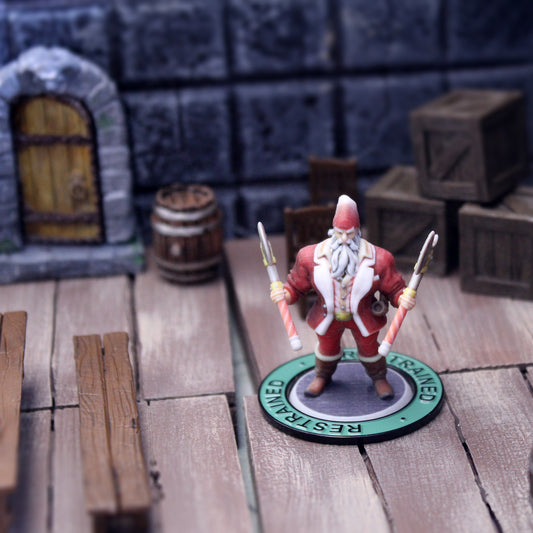For many years it was difficult, if not impossible, to find polyhedral dice sets made from anything but plastic. When I was shopping for my first set of dice, the choices were clear, solid, and sparkly. I went with sparkly.
In recent years, though, dice made from many different materials have become available. Chief among these are metals, be they precious metals, exotics such as tungsten, or more common alloys. As metal dice become increasingly popular, more and more players ask: are metal or plastic dice better for tabletop gaming?
The answer, of course, is “well, it depends.” Here are the main questions to address when choosing dice materials.
Are Metal Dice More Fair:
There are two aspects of dice that can make them roll unfairly: the dice themselves or the throw. Dice will roll unfairly if unbalanced weight or some surface defect causes them to favor one or more sides. In this metal dice have a very slight advantage. Plastic dice, by the nature of how they’re produced, can have some small bubbles that throw the weight off a tiny bit. Because plastic is less durable, surface defects can be a bit more common, too. However, the real-world effects of these problems will generally be too small to make a difference in normal gameplay. Unless there’s a surface defect or crack that’s significant enough to be visible, quality plastic dice from a reputable source should be just fine.
The throw of the dice can also be unfair. Because they’re so much lighter, plastic dice tend to tumble more after the throw, introducing randomness. Metal dice, however, can be thrown with plenty of randomness if they are shaken blind in the hand or a dice cup, or rolled through a dice tower. Putting some good spin on the throw also adds plenty of randomness. So, with either metal or plastic dice, I wouldn’t be worried about the randomness of any throws at my table unless I was dealing with an extremely unscrupulous player, at which point there are bigger things to worry about than one too many critical hits.
Are Metal Dice More Durable:
On this aspect, I’ll give a bit more of an edge to metal dice. The polymers used in quality plastic dice are pretty tough. That first set of sparkly dice I bought is nearly 20 years old now, and they’re still in perfect shape. However, plastic dice can absolutely chip, crack, scratch, or deform. It’s uncommon, but I’ve certainly seen, and even owned, cracked plastic dice. Generally, though, this has been due to mistreatment of some sort. I once sat on two d8s that were stacked perfectly, and one of them cracked a bit. If you throw a plastic d20 at a wall, it’s probably going to take some damage. I’ve also heard tell of the polymers softening with a great deal of heat, so maybe don’t leave them on a stove or the dash of a car in Florida. Take a reasonable amount of care of your dice, and they should last a long time.
Will Metal Dice Damage My Rolling Surface:
This can definitely be an issue with metal dice, though not an especially difficult one to avoid. They’re heavy, hard, and covered in corners. When rolling metal dice, I generally recommend using a rolling tray or pad if you care at all about the surface you’re rolling on. With normal metal polyhedral dice, that should be plenty unless it’s a particularly delicate surface, like a glass tabletop or antique table, so long as you’re rolling with a reasonable amount of force. More care should be taken with even heavier dice, such as oversized metal dice or tungsten dice (which feel impossibly heavy in the hand). As with anything, a little bit of common sense and forethought will take you a long way.
So, which are better overall, plastic or metal dice? If you’re considering purely utilitarian concerns, the differences are honestly quite small. What it comes down to is the same reason we don’t all use plain white dice with black pips: style and aesthetics. Different dice will appeal to different players. For my part I use a mix of both plastic and metal dice, depending on my mood. Sometimes I long for what I think of as the classic click-clack of plastic dice on a wooden table, with all of the variety of bright colors and sparkles that my collection includes. Sometimes I want the heft and gravity of metal dice, or the cool-to-the-touch feeling of the metal. Sometimes I yearn for the specialness of a precious metal die. And sometimes I just want whichever d20 isn’t banished to the dice bag to think about why it shouldn’t give me critical fails in combat.
By Bill Dubert, contributing Dice Dungeons blogger.


